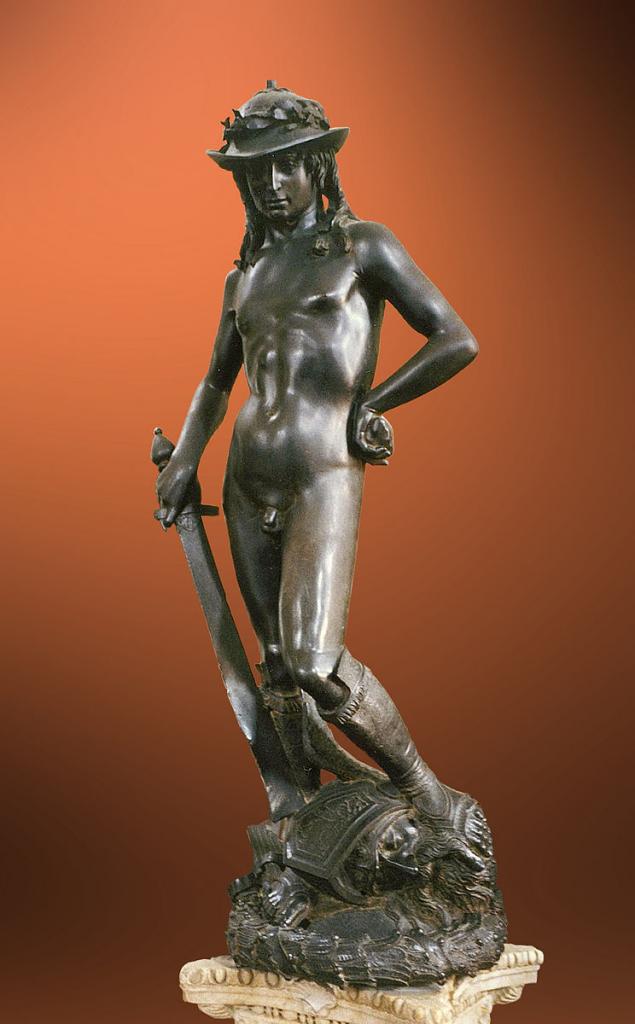
(Wikimedia Commons public domain)
The latest installment of my weekly column in the Deseret News has appeared:
“Does art always accurately reflect history?”
Not to spoil the surprise, but my answer is “No.” In fact, it very seldom does.
Commonly, it’s simply because neither the artist in question nor his or her patron knows the accurate historical details. Not infrequently, however, it’s because the artist might be trying to convey an idea more clearly than the clutter or distraction of real history would allow without a great deal of explanation.
And, of course, sometimes it’s just because the artist is sloppy. Consider, for example, the cover of the copy of C. S. Lewis’s novel Out of the Silent Planet that I first read (and of which, alas, I haven’t been able to find an image online): It’s grossly inaccurate with respect to details that are expressly described in the book. For instance, there’s a figure standing on a lunar-looking landscape dressed in a space suit. But the book mentions no space suits at all; they’re unnecessary on Malacandra.
***
As I write, we’ve just finished a late lunch with relatives after we joined for a nephew’s wedding in the Salt Lake Temple. It’s good to be together with family, and especially for an event such as this one.
***
There’s something potentially interesting down in New Zealand:
“The First Mormon(ish) Prime Minister?”
The author of the article concludes by saying that Jacinda Ardern’s rise to political power is “something to be celebrated” by Latter-day Saints.
But, frankly, I don’t see much to celebrate.
I agree that it’s a story worth noting, but I’m afraid that I can’t work up a great deal of excitement over the possible election of “an agnostic, lapsed Mormon, ex-Mormon, or ethnic Mormon” to the premiership of New Zealand.
To be clear, I don’t necessarily oppose her election, either (though I’m guessing that I wouldn’t agree with her politics). I just don’t care.
To me, the Latter-day Saint community is an intentional one, made up of people who have entered into covenants and who (however imperfectly and discontinuously) try to keep them. I’m not necessarily angry or hostile toward folks who have rejected their community and their covenants, but I’m not particularly keen on counting their achievements as “Mormon achievements,” either. I don’t regard their career successes as reflecting either well or negatively on the community that, to some degree or another, they have deliberately rejected.
I understand that, in some circles, a few of my perpetually hyperventilating critics will need to reach for their smelling salts as a result of what they will claim to perceive as my narrow-minded hatefulness. Those folks will, as they almost always do, have missed my point by a light year or two. All I’m saying is that cultural or ethnic Mormonism is of only slight interest or significance to me. Active commitment to the Kingdom is what really matters and is definitely what will count in the next world.
With the late Elder Neal A. Maxwell, I’m really fond of a quotation from the heroic dissenting English clergyman William Law (1686-1761):
“If you have not chosen the Kingdom of God first, it will in the end make no difference what you have chosen instead.”












